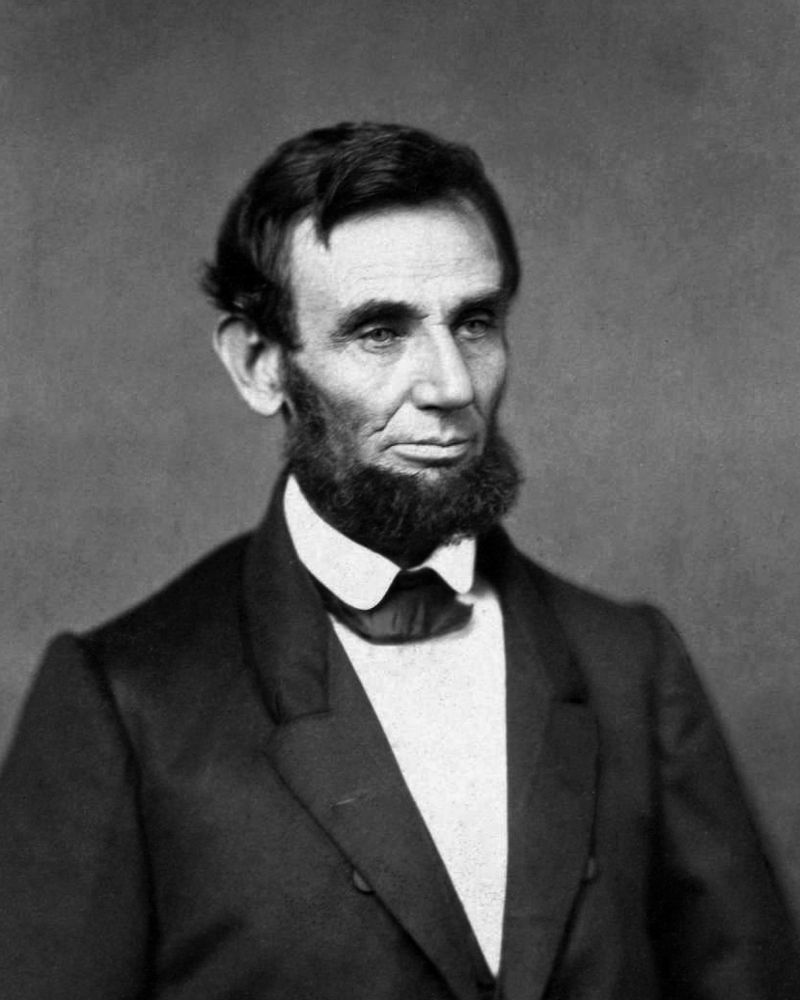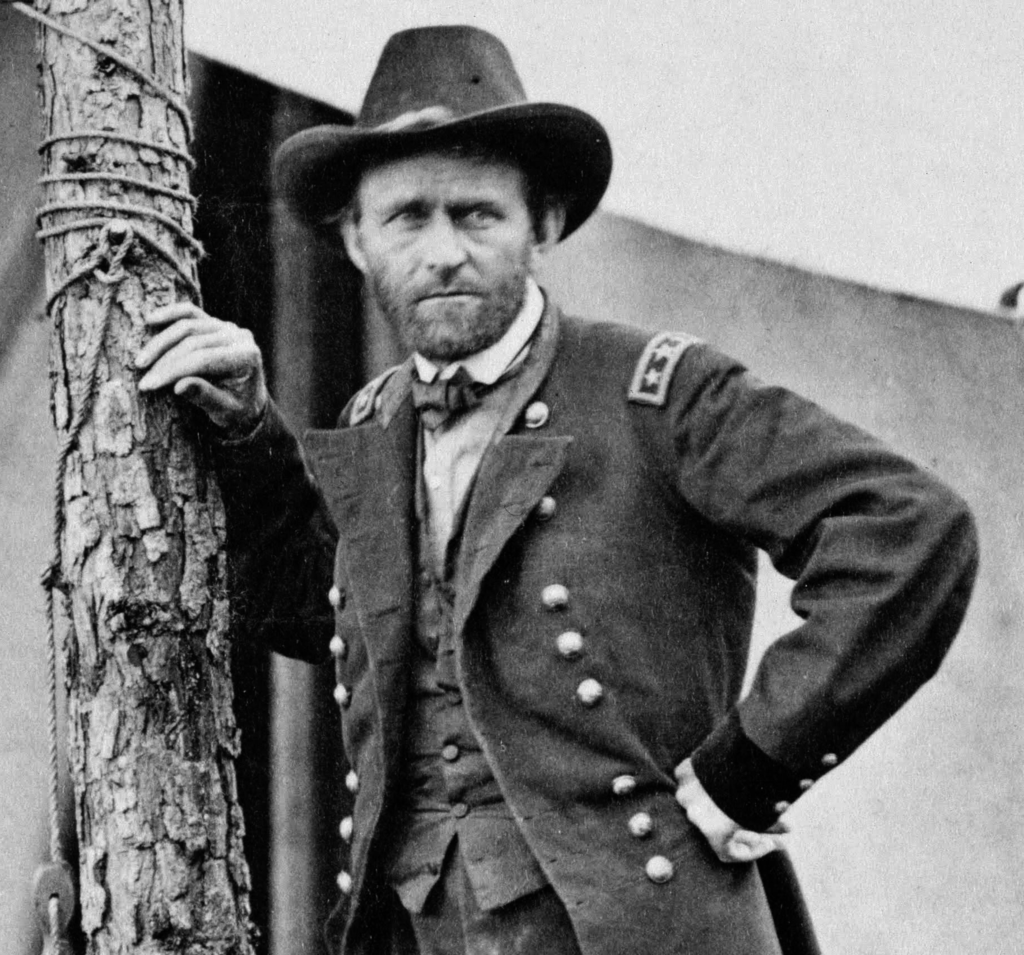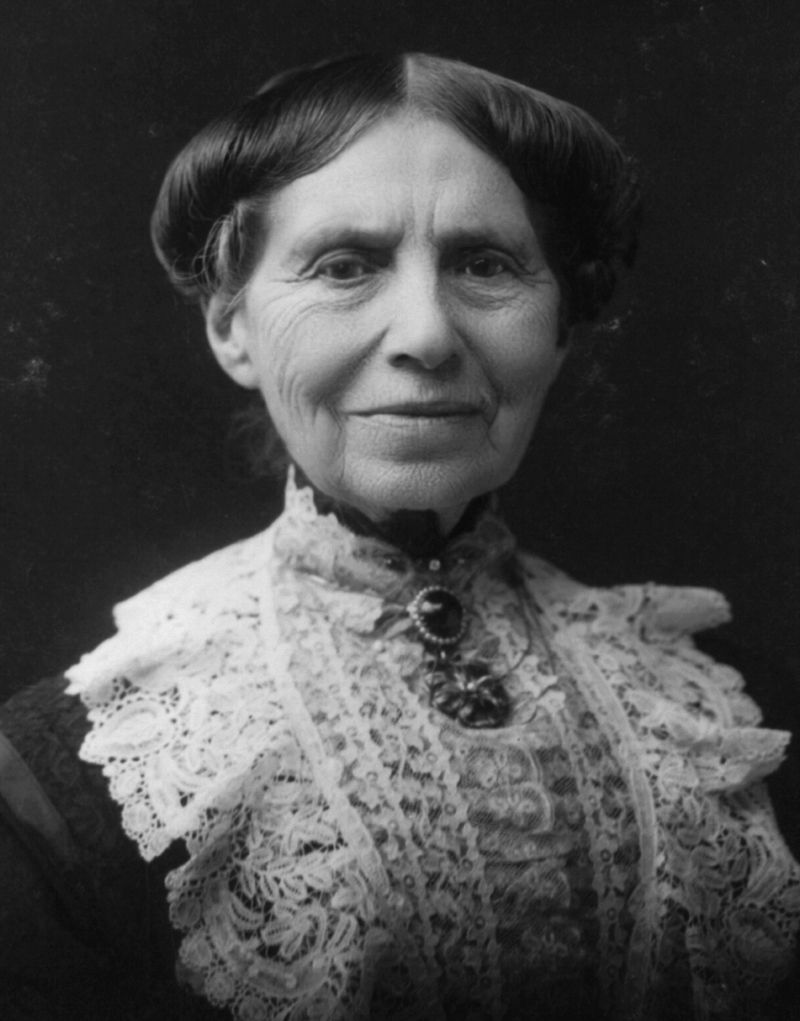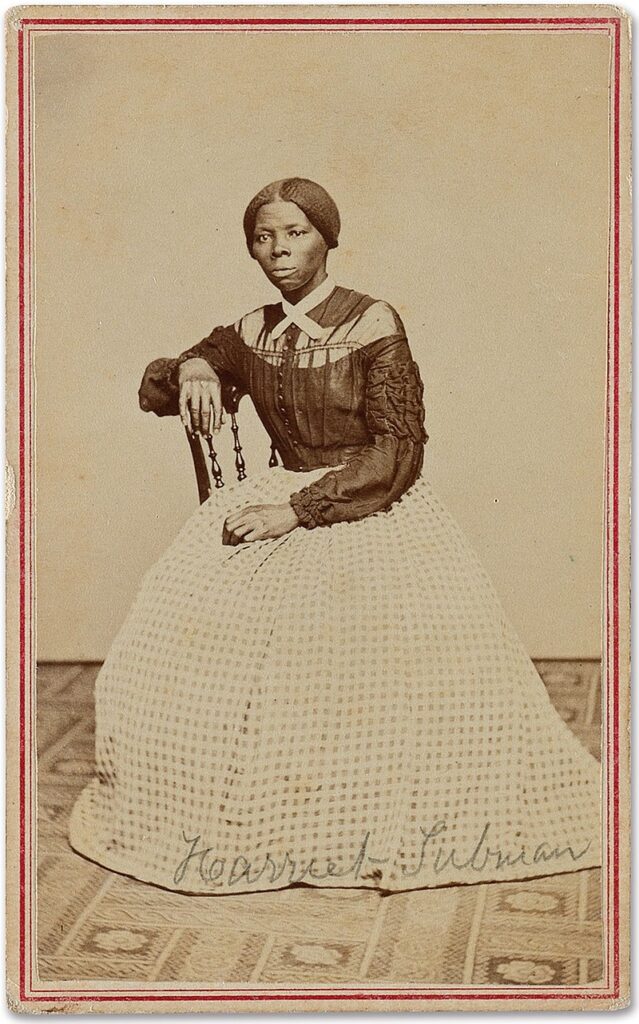Top Ten Celebrities of the American Civil War
The American Civil War was waged between the Union (North) and 11 Southern Confederate States. The conflict was also known as the “War between the States” that lasted from April 1861 to April 1865. Here we look at the top ten celebrities of the American Civil War.

The main reason for the conflict can be traced back to a decade-long friction over slavery. Abraham Lincoln’s victory in the 1860 presidential election further fuelled the debate. Why? Simply because the newly elected President strongly opposed slavery.
- Abraham Lincoln
- Jefferson Davis
- Ulysses S. Grant
- Robert E. Lee
- Thomas “Stonewall” Jackson
- Clara Barton
- Frederick Douglas
- William Tecumseh Sherman
- Nathan Bedford Forrest
- Harriet Tubman
Fast forward to 1861, seven slave states announced separation from the Union and formed the Confederacy. Later, four additional slave states joined the opposition. Under Jefferson Davis, these 11 Confederate states started a heated rebellion against the Union.
This bloody war continued for four years with the eventual defeat of the Confederates in April 1865.
Read More: Civil War Cannonball Found in River & it Was Live
Throughout the war, numerous figures from political and military backgrounds rose to prominence. That, as a result, gave America a set of heroes who would be remembered for decades to come.
Without further ado, here are the Top 10 Most Celebrated People of the American Civil War:
Abraham Lincoln
Of course, we have to begin the list with the man himself: Abraham Lincoln.

Abraham Lincoln’s first portrait as President in 1861. He came to epitomise the US Civil War.
Abraham Lincoln (12 Feb 1809 – 15 Apr 1865) has a distinctive appeal among the American Civil War heroes. And for obvious reasons as well.
In the 1860 Presidential Election, Lincoln became the 16th President of the United States. However, the pro-slavery faction deemed his victory a threat. On 20 Dec 1860, South Carolina became the first state to secede from the Union. Others followed shortly afterward.
The Confederates began taking control of military posts in the South. Then, only a month after Lincoln’s inauguration, they opened fire on Fort Sumter in South Carolina on 12 Apr 1861.
The attack instigated the Civil War.
Lincoln strategically led the US throughout the Civil War, preserving the Union at the same time. However, his most renowned act was the “Emancipation Proclamation,” issued on 1 Jan 1863. The proclamation officially declared the freedom of more than 3.5 million enslaved African Americans. The long-lasting tradition of slavery had finally come to an end.
After winning the war, Lincoln had plans to reunite and rebuild the country. Unfortunately, John Wilkes Booth assassinated the President on 14 Apr 1865.
Jefferson Davis
Jefferson Finis Davis (3 Jun 1808 – 6 Dec 1889) was the first and only President of the Confederate States.
Initially, Davis served as a lieutenant in the US Army from 1828 to 1835. He fought in the Mexican-American war. In 1947, he was declared a national hero for winning the Battle of Buena Vista.
Read More: What Native Land in the Americas are you Living on?
Davis began his political career in 1843 and was voted the senator of Mississippi in 1845. His first action as the Confederacy President was to send a peace commission to Washington. However, upon refusal, he ordered the attack on Fort Sumter.
Despite having a successful military and political career, he faced several troubles during his Presidency. The failure to reunite the 11 states, his sensitivity to criticism and his strategic shortcomings contributed to the South’s defeat.
Soon after the Confederacy’s defeat, he was captured and imprisoned for two years. He later settled overseas and published a book, “The Rise and Fall of the Confederate Government.” In his work, he reasoned and defended his political decisions.
Ulysses S. Grant
Ulysses S. Grant (27 Apr 1822 – 23 Jul 1885) commanded the Union Army during the Civil War.
Grant began his military career in West Point, Kentucky. He was appointed as 2nd lieutenant in Missouri. Moreover, he fought in the Mexican-American War – just like Davis.
 A remarkable photo of General Ulysses Grant at the Battle of Cold Harbor, June 1864
A remarkable photo of General Ulysses Grant at the Battle of Cold Harbor, June 1864
During the Civil War, he commanded troops at the infamously bloody Battle of Shiloh in 1862. In 1863, he seized control of the Mississippi River from the Confederacy. Rightfully so, President Lincoln promoted him to Lieutenant General in March 1864.
His many victories gained him a reputation as a relentless leader. The intrepid commander battled Confederate General Robert E. Lee for thirteen months at Petersburg. On 9 Apr 1865, Lee surrendered to Grant.
Later in 1868, Grant became America’s 18th President. His work as a President is as remarkable as it was as a Commander-General. Perhaps Grant’s most notable contributions include his initiatives to revive the American economy and promote civil rights for African Americans.
Robert E. Lee
Robert Edward Lee (19 Jan 1807 – 12 Oct 1870) was the Confederate General who led the Southern Army during the Civil War.
Lee was a West Point graduate and an acknowledged war hero before the Civil War. Interestingly, President Lincoln had offered him the command of the Union armies. Nevertheless, he declined because his loyalty lay with his home state – Virginia.
Read More: Archaeologist Runs for his Life After Finding ‘LIVE’ Civil War Shell
In 1861, Lee assumed the command of the Confederate States Army.
The Confederate Army succeeded in many early battles thanks to Lee’s excellent strategies. However, massive defeats at the battles of Gettysburg and Antietam in 1862 halted his attempts at North’s invasion. His surrender in 1865 marked the end of the Civil War.
In several of his letters, Lee supported a peaceful reconciliation between the North and South. After the war, he became the head of Washington College. Today, the college is known as Washington and Lee University.
Thomas “Stonewall” Jackson
Thomas Jonathan Jackson (21 Jan 1824 – 10 May 1863) was a brilliant tactical Confederate General under Robert E Lee.
Jackson graduated from West Point in 1846. He distinguished himself at Chapultepec during the Mexican-American War. Later, he taught philosophy and artillery tactics at the Virginia Military Institute from 1851- 1861.
Like Lee, Jackson joined the Confederate Army due to his loyalty to Virginia. Soon, Jackson became known as the right arm of Commander Lee. The General strategically led the Confederate Army at Manassas, Antietam, and Chancellorsville.
Jackson’s display of resilience was commended by the Union and the Confederates alike. The canny tactician earned the nickname “Stonewall” at the 1st Battle of Manassas (Bull Run). Upon seeing him holding firm ground against the Union forces, a general remarked, “Jackson is standing like a stone wall.” The nickname stuck.
 General Thomas ‘Stonewall’ Jackson and his horse, Little Sorrel, (painting by David Bendann)
General Thomas ‘Stonewall’ Jackson and his horse, Little Sorrel, (painting by David Bendann)
In 1863, Stonewall got shot by friendly fire. During this time, he was successfully marching his troops at Chancellorsville. With an amputated left arm, Jackson died eight days later because of pneumonia. His death dwindled the Confederate morale.
Clara Barton
Clarissa Harlowe Barton (25 Dec 1821 – 12 Apr 1912) is famously known as the “Angel of the Battlefield” for her services during the Civil War.
Initially, Barton was a teacher and a patent clerk. She nursed wounded soldiers on the frontlines during the war. Barton travelled the country amidst the conflict and assisted in dangerous battles like Antietam, Fredericksburg, and Manassas.
Barton organized field hospitals and provided nursing lessons. She collected and supplied medical supplies and food to the haggard soldiers. However, her kindness did not end there.
 Clara Barton the “Angel of the Battlefield” was the founder of the US American Red Cross.
Clara Barton the “Angel of the Battlefield” was the founder of the US American Red Cross.
She provided medical aid not only to Union but also to Confederate soldiers. When the war ended, she ran the Office of Missing Soldiers. The wartime nurse founded the American Red Cross and authored several books as well.
Read More: Treasure Hunter Finds Relics of the American Civil War in River
In 1973, she was added to the National Women’s Hall of Fame for her selfless services.
Indeed, Barton was an angel of the battlefield.
Frederick Douglas
Frederick Douglass (Feb 1818 – 20 Feb 1895) was an African-American abolitionist, reformer, writer, and orator.
Douglas escaped slavery in 1838 and became an abolitionist leader. He is best known for his antislavery speeches and writings. Two of his autobiographies were best-sellers – even before the Civil War.
At the onset of the war, he became a devoted advocate for formerly enslaved people. He helped recruit black soldiers for the Union. Three of his sons were among the soldier recruits too.
In addition, he ran a newspaper, “Douglas Monthly.” The famous abolitionist wrote articles to motivate African Americans to enlist with the Union.
After the war ended, he dedicated himself to fighting for African Americans’ rights. Interestingly, he was the first African-American nominated for US Vice President.
Douglas’ third and last autobiography, “Life and Times of Fredrick Douglas,” narrates his life before and after the Civil War. He is an American icon who fought for noble causes like equality, women’s rights, and social justice.
William Tecumseh Sherman
William Tecumseh Sherman (8 Feb 1820 – 14 Feb 1891) was one of the most capable Union generals of the American Civil War. He was called “the first modern general.”
Sherman led a brigade in the First Battle of Manassas early into the Civil War in 1861. After that, he fought under General Grant as a Divisional Commander in the Battles of Fort Henry and Donelson. Sherman distinguished himself in the critical Battle of Shiloh.
The Divisional Commander led Union troops into the South, parading through Georgia and Carolina. However, his most illustrious campaign was the conquest of Atlanta in 1864. Instead of direct combat, he used a systematic approach of burning farms and similar infrastructure.
 Another remarkable photo from the American Civil War. Here William Tecumseh Sherman poses in 1863.
Another remarkable photo from the American Civil War. Here William Tecumseh Sherman poses in 1863.
The battle degraded the Confederacy’s motivation and fighting capacity.
Later, Sherman was assigned Commander General of the Army in 1869. Published in 1875, his memoirs of the war are among the renowned first-hand accounts of the American Civil War.
Nathan Bedford Forrest
Nathan Bedford Forrest (13 Jul 1821 – 29 Oct 1877) was the American Civil War Confederate General and Cavalry Commander.
Forrest joined the Confederate Army as a private in June 1861. Soon, he became a lieutenant. His battle tactics and distinguishing performance promoted him to the post of Brigadier General.
What’s fascinating is that Forrest earned the title “The Wizard of the Saddle” for cleverly using cavalry units.
Despite being acknowledged as a brilliant strategist and cavalry leader, he is one of the most controversial war figures. For instance, he was the main culprit behind the Fort Pillow massacre. Here he killed hundreds of Union soldiers at the Fort.
The majority of them were African Americans.
After the war, he served as the first grand wizard of the Ku Klux Klan in 1867. However, he later dissociated from them by denying any formal connection. Nevertheless, his strong white supremacist beliefs make him the human symbol of the Confederate agenda.
Harriet Tubman
Harriet Tubman (6 Mar 1820 – 10 Mar 1913), the American bondwoman, was an abolitionist and a Union spy.
Tubman was born into slavery. But, using her knowledge of the underground railroads, she led dozens of enslaved people to the North even before the Civil War.
Additionally, Tubman served as a scout, nurse, and cook during the Civil War. In 1862 she began working as a spy for the Union. Thus, the bondwoman gathered intelligence on the location of Confederate forces.
 Here Harriet Tubman sits for her portrait photo in 1868. Tubman served as a served as a spy, scout, nurse, and cook during the war.
Here Harriet Tubman sits for her portrait photo in 1868. Tubman served as a served as a spy, scout, nurse, and cook during the war.
Tubman was the only woman to lead a military expedition during the Civil War in 1863. She led a surprise attack on a plantation in South Carolina with just 150 soldiers. They rescued more than 700 enslaved people along the way. The attack landed a massive blow to the Confederacy.
Consequently, Union generals recognized her services as “too valuable.” Later, Tubman opened an orphanage and an old age house in Auburn. She fought for causes like women’s rights as well.
As we reflect on the American Civil War, it is impossible to ignore the impact that these people had on American history. They were soldiers, writers, activists, and leaders who fought for what they believed in – even when it meant risking their lives.
Related Post
A shocking documentary proves that mermaids do exist
SHOCKING Revelation: Thuya, Mother of Queen Tiye, Was the Grandmother of Akhenaten and Tutankhamun—What Ancient Egyptian Secrets Did She Leave Behind?
Breaking News: Astonishing Discoveries at Karahan Tepe Confirm an Extraterrestrial Civilization is Hiding on Earth, and NO ONE Knows!
Breaking News: Researchers FINALLY Discover U.S. Navy Flight 19 After 75 Years Lost in the Bermuda Triangle!
NASA’s Secret Investigation: Uncovering the Astonishing Mystery of the UFO Crash on the Mountain!
Explosive UFO Docs LEAKED: Startling Proof That Aliens Ruled Ancient Egypt!